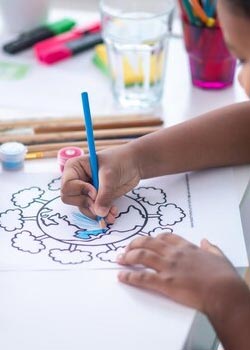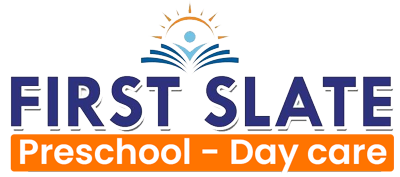LKG, short for Lower Kindergarten, is an integral phase in a child's educational journey, laying the foundation for their academic and social development. In this comprehensive guide, we'll delve into what LKG entails, its significance in preschool education, and how parents can support their child during this crucial stage.
What is LKG?
LKG marks the initial step in the formal education system, typically catering to children aged three to four years. It acts as a bridge between informal early childhood education and the structured learning environment of primary school. LKG is often considered a preparatory year before entering UKG (Upper Kindergarten) or the subsequent class levels.
Curriculum and Focus Areas
The curriculum of LKG is thoughtfully designed to nurture various aspects of a child's growth, including cognitive, social, emotional, and physical development. Here are the key focus areas:
- Language Development: LKG emphasizes language acquisition through storytelling, rhymes, songs, and interactive sessions. Children are exposed to letters, sounds, and basic vocabulary, laying the groundwork for reading and writing skills.
- Numeracy Skills: Basic numeracy skills such as counting, number recognition, simple addition, and subtraction are introduced through playful activities and hands-on experiences.
- Fine Motor Skills: Activities like coloring, tracing, cutting, and pasting help refine fine motor skills, promoting hand-eye coordination and dexterity.
- Socialization: LKG provides ample opportunities for children to interact with peers, fostering social skills like sharing, cooperation, empathy, and conflict resolution.
- Creativity and Expression: Art, music, drama, and free play encourage self-expression, creativity, imagination, and sensory exploration.
- Physical Development: Outdoor play, gross motor activities, and simple exercises promote physical fitness, coordination, balance, and spatial awareness.

Importance of LKG Education
LKG plays a pivotal role in laying a strong educational foundation and shaping a child's holistic development. Here's why it's crucial:
- Smooth Transition to Formal Education: LKG eases the transition from home or daycare to a structured school environment, helping children adapt to routines, rules, and classroom dynamics.
- Early Learning Readiness: It instils a love for learning, curiosity, and enthusiasm, setting the stage for lifelong learning and academic success.
- Development of Basic Skills: LKG focuses on essential skills such as communication, numeracy, fine motor skills, and social interaction, which form the building blocks for future learning.
- Holistic Development: By addressing cognitive, social, emotional, and physical domains, LKG promotes holistic development, nurturing well-rounded individuals.
- Confidence Building: Successes and achievements in LKG boost children's confidence, self-esteem, and sense of accomplishment, laying a positive foundation for future academic endeavors
Supporting Your Child's LKG Journey
As a parent, you play a crucial role in supporting your child's LKG experience. Here are some tips:
- Create a Positive Learning Environment: Foster a nurturing and stimulating environment at home that encourages curiosity, exploration, and learning through play.
- Establish Routines: Establish consistent routines for meals, sleep, and playtime to provide structure and stability, which are essential for young children.
- Encourage Communication: Engage in conversations, read together, and encourage your child to express themselves verbally, laying the groundwork for language development.
- Provide Learning Opportunities: Offer age-appropriate toys, books, puzzles, and art supplies to encourage exploration, creativity, and problem-solving skills.
- Celebrate Milestones: Acknowledge and celebrate your child's achievements, no matter how small, to boost their confidence and motivation.
- Stay Involved: Stay informed about your child's progress in LKG, communicate with teachers, and actively participate in school activities and events.
LKG serves as a crucial stepping stone in a child's educational journey, providing a nurturing environment for holistic development and preparing them for future academic success. By understanding the significance of LKG and actively supporting your child's learning experience, you can lay a strong foundation for their lifelong learning journey.
What age group does the LKG program cater to?
Our LKG program is designed for children typically aged between 4 and 5 years old. However, we understand that developmental milestones vary, so we assess each child individually to ensure they're placed in the appropriate class.
What curriculum do you follow for the LKG level?
At First Slate, our LKG curriculum is a blend of age-appropriate academics, social skills development, and creative activities. We incorporate elements of play-based learning along with structured lessons to cater to the holistic development of each child.
What are the daily routines and activities in the LKG program?
Our LKG program follows a structured daily routine that includes a balance of indoor and outdoor activities, circle time, story sessions, art and craft, music and movement, snack time, and free play. This routine is designed to keep children engaged and stimulated throughout the day.
How do you assess the progress and development of LKG students?
We use a variety of assessment methods including observations, informal assessments, and periodic evaluations to track the progress and development of LKG students. We believe in a holistic approach to assessment that considers not just academic achievements but also social, emotional, and physical growth.
What measures do you have in place to ensure the safety and security of LKG students?
The safety and security of our students are paramount. We have strict protocols in place including CCTV surveillance, restricted access to the premises, trained staff for supervision, and regular safety drills to ensure a safe environment for LKG children.
What is the teacher-to-student ratio in the LKG classes?
We maintain a low teacher-to-student ratio in our LKG classes to ensure that each child receives adequate attention and support. Typically, there is one main teacher along with one or more teaching assistants depending on the size of the class, ensuring personalized care and guidance for every student.




